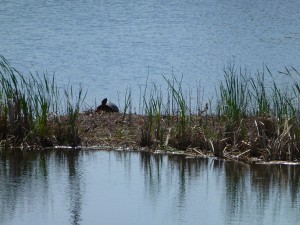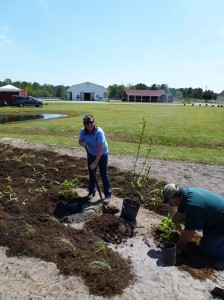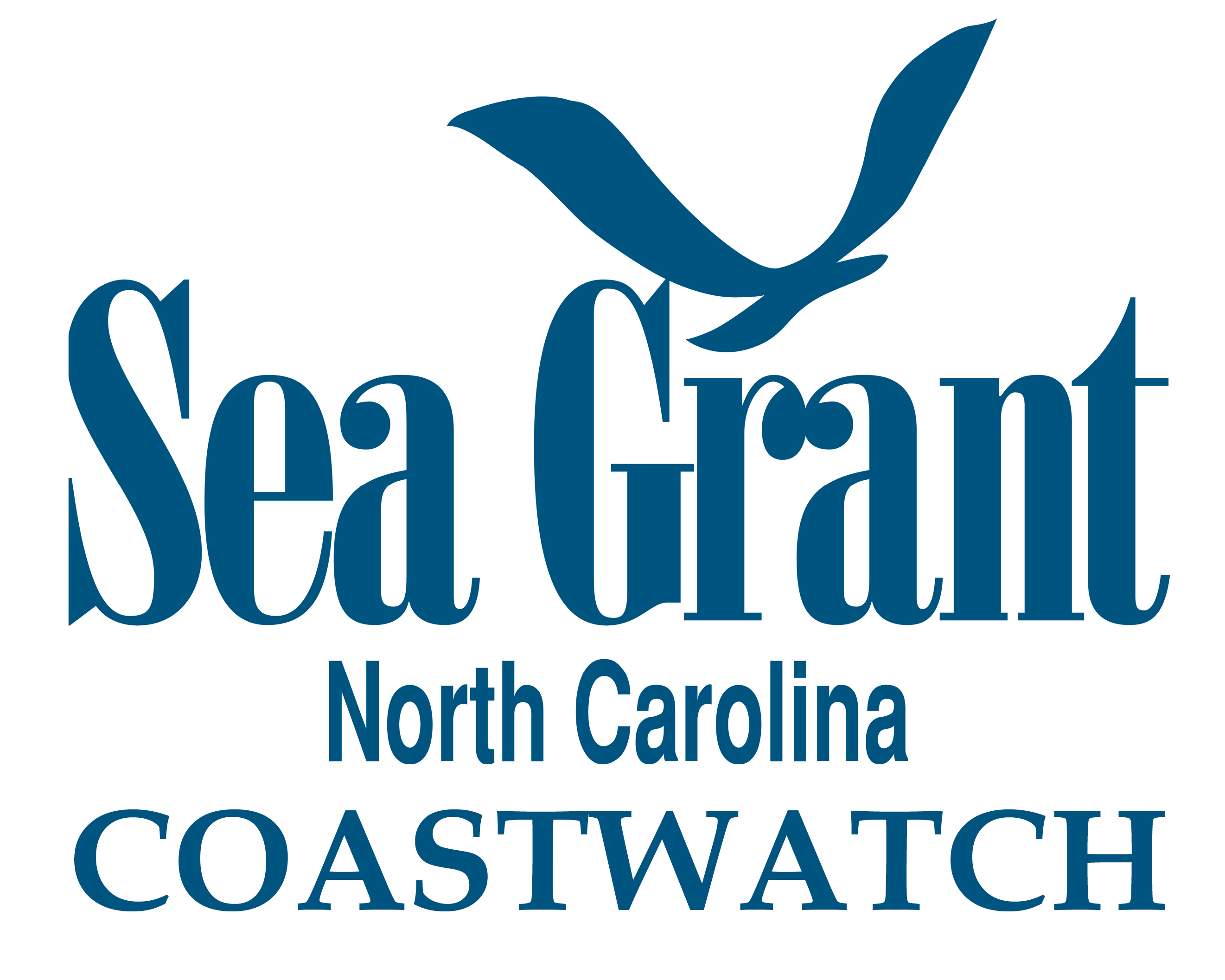By SHARON SETTLAGE
Reduce water runoff, slow it down, and soak it up with plants. This was a central theme in the Currituck Sound Water Quality Fair held in April at the Currituck Rural Center in Powells Point.
Barbara Doll, water quality specialist with North Carolina Sea Grant and chairperson of the event, is pleased with the interest generated.
“Currituck County has worked hard, along with support from Sea Grant and other organizations, to launch an effort to protect its natural resources and reduce waste and energy use. The fair provided an opportunity to celebrate the achievements made so far, as well as the county’s vast and vital natural resources,” she says.
Sea Grant cosponsored the one-day event, along with Currituck County Cooperative Extension, the N.C. Coastal Federation and the University of North Carolina Coastal Studies Institute.
Some visitors enjoyed the fair while paddling the waters of the Currituck Sound in brightly colored kayaks. Others talked with extension agents and representatives from various organizations who touted the benefits of delivering clean water to the sound.
Plants, and their abilities to filter water runoff from impervious surfaces, were a big draw.

A freshwater turtle suns itself. Photo by Sharon Settlage.
Visitors were given water-loving plants, such as mallow or sedge, to plant alongside a pond. The plants provide beautification and filtration benefits, while attracting and supporting wildlife.
Plants also were the star feature in a rain garden demonstration. Workers and volunteers installed muhly grass, blueflag irises, and other perennials and shrubs in a garden adjacent to an asphalt parking lot. The slightly concave garden will absorb and filter water runoff before it enters the sound.
A representative from the North Carolina Aquarium on Roanoke Island displayed native wetland species including ferns and asters. A raffle winner went home with a healthy Virginia sweetspire donated by the aquarium.
Children got their hands wet at a Division of Water Quality demonstration. Representatives had constructed miniature wetlands to show how water is better filtered by a rocky shoreline combined with grasses instead of a bulkhead built at the edge of a body of water. They also showed how water pollution can find its way to the sound.
Cooperative Extension exhibited not only the standard rain barrel, which holds about 50 gallons of rainwater, but also 200-gallon barrels and larger cisterns that easily can be equipped with a pump for washing cars. He explained how cisterns can fill quickly from a 2-inch rain event, even on a relatively small roof.
Guests were treated to the memories of Currituck Sound by Wayne Twiford Sr., a 74-years-young Currituck native. Twiford told of days of duck hunting in the marshes along the sound.
“We could run up the creeks in a motorboat, the grass beds were thick… Now you can’t get up the creeks they have eroded so badly,” he said.
“the grass beds aren’t here anymore, they were food for huge rafts of coots, which were a staple for local people. Bass fishing was extremely good,” he added, noting that “this was the bass fishing capital of the country.” Finally, he recount ed peaceful nights listening to geese and swans.
Cameron Lowe, Currituck County extension director, informed attendees of how the county is now a leader in environmental stewardship. She spoke of a process that started in 2008 with a survey of residents. Respondents listed the environment as the primary concern for the county. Thus, the Currituck County Goes Green initiative started.

Barbara Doll plants a tree in a rain garden. Photo by Sharon Settlage.
Currituck County leaders partnered with the county’s Cooperative Extension and Gloria Putnum, Sea Grant coastal resources and communities specialist, to help adopt a program that included sustainability projects and policies.
They enlisted Doll’s expertise in wetland restoration, and constructed a wetland and wildlife garden at the Currituck County Cooperative Extension Center. See Coastwatch Holiday 2010 for more information.
The pond is now home to turtles, egrets, and wetland plants that were just awakening from winter when Sea Grant specialists and county extension agents checked on the pond in April. Numerous Coreopsis flowers were beginning the process of budding, promising a glorious yellow display into the summer.
Back at the Rural Center, fairgoers signed the Currituck County Going Green Pledge for Clean Water. Registrants agreed to use minimal fertilizer and rain barrels, and to add native plants alongside streams and shorelines, among other environmentally friendly activities.
This article was published in the Summer 2012 issue of Coastwatch.
For contact information and reprint requests, visit ncseagrant.ncsu.edu/coastwatch/contact/.
